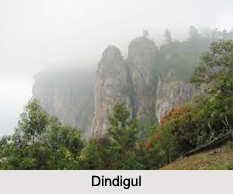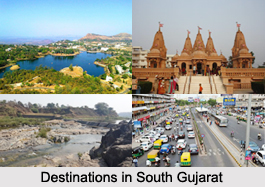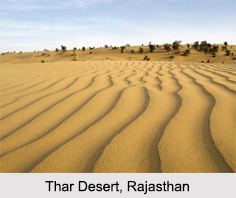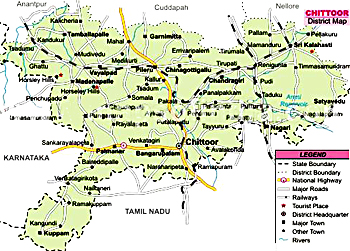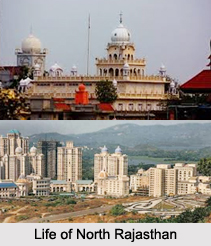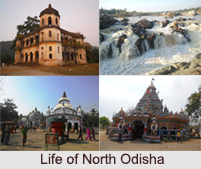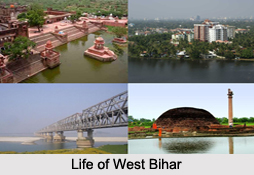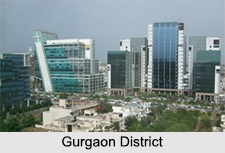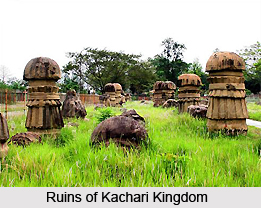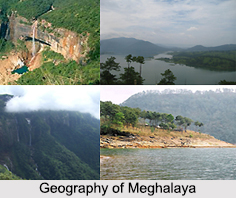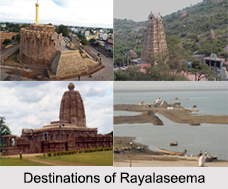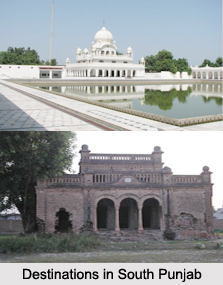Introduction
Bargarh district also known as Baragarh district is situated on the extreme western part of the state of Odisha. It is an administrative district and the district headquarters are located in the city of Bargarh. The people of this district speak Sambhalpuri, a dialect in Oriya. Agriculturally, industrially and trade wise this district is one of the most developed district of Odisha. It holds the Hirakud Irrigation project and resources like Sambhalpuri handloom, sugar factory and cement factory adds to the prosperity of the place. The total population of Bargarh district is 1345601, while the population density is 231 people per square kilometres. There are seven tehsils and two sub divisions of this district.
Location of Bargarh District
The Bargarh district lies between 20 degree 43 minutes to 21 degree 41 minute North latitude and 82 degree 39 minute to 83 degree 58 minute East longitude. It is one of the western most districts of the state of Odisha. It is bounded on the north by the State of Chhatisgarh and on the east by the district of Sambalpur, on the south there is the district of Balangir and Subarnapur and on the west the district of Nuapara. The district has an area of 5837 square kilometers. The headquarters of the district Bargarh is situated on the left bank of Jira River.
History of Bargarh District
History of Bargarh defines the architectural delights of Chouhan Dynasty. There are many forts built by the Chouhan dynasty. The old fort walls can be traced near the `Jeera` river towards the plains of Ambapali.
Medieval History of Bargarh
Bargarh got the medieval history from the forts built by Chouhan Dynasty. From an inscription of the 11th century AD it is believed that the original name of the place was "Bahgar Kota". Balaram Dev, the Chauhan King of Sambalpur District ruled this province when it acquires the name "Bargarh". He made it his headquarters for some time while the fort near the Jeera River said to be built. Narayan Singh, the last Chauhan King of Sambalpur, now Sambalpur District gave the whole land of Bargarh to two Bramhin brothers Krushna Dash and Narayan Dash, son of Baluki Dash who was killed in action by the Gond Rebel led by Baldia Ray and Mahapatra Ray. Padampur sub-division of bargarh, popularly known as the "Borasambhar Region" was the headquarters of the Zamindari extended over 2178 km2. This is the biggest sub-division of Bargarh District which has also a feudal history with a tribal leader.
Buddhism in Bargarh
Buddhism in Bargarh played a significant role in defining the lifestyle of the people for a short period of time. Some ancient Buddhist monasteries and sculptures can be seen along a belt starting from Bijepur block (Ganiapali) to the Paikamal block (Nrusinghanath), which has a clear mention in Hieun Tsang 's literature as Po-Li-Mo-Lo-Ki-Li (Parimalagiri).
Modern History of Bargarh
The legendary Surendra Sai led his war against the British East India Company from Debrigarh, which is a peak on the Barapahad Range. His fight against the British East India Company particularly after the First War of Independence in 1857 was remarkable in the history of freedom struggle in India. Debrigarh today is a tiger sanctuary. Barabakhra (12 caves) used to be a secret meeting place during the British era. Bargarh was a subdivision of old Sambalpur district until April 1992, when the then chief minister Mr. Biju Patnaik declared it as the headquarters of the newly formed district by the same name.
Geography of Bargarh District
Bargarh district enjoys a tropical monsoon type of climate. The district experiences an average annual rainfall of 1482mm. Normally South west monsoon sets between 1st week of July and the withdraws completely by 15th October . This is the normal date which fluctuates from year to year. Bargarh district comes under the Low rainfall area category. The average annual rainfall fall below 130 cm. summer, Rainy and winter are the three main seasons of Bargarh district.
The mean Humidity of the place is in between 45 percent to 50 percent in summer and 85 to 95 percent in the rainy season and within 70 to 80 percent during the winter. The Bargarh district can be divided into three natural divisions, firstly, the Bargarh Plain, secondly the Borasambar and lastly the Ambabhona and Lakhanpur. The greater portion is an open plain of considerable fertility drained by the Danta and the Jira, the two tributaries of the Mahanadi River. The soil is a mixture of sand and gravel as well as of clay and is good for rice cultivation.
Culture of Bargarh District
Bargarh district in Odisha is deep rooted in culture and heritage. This place hosts the world`s largest Open Air Theatre festival. Dhanu Yatra is the most popular festival of Bargarh district and is celebrated for eleven days on a row. Held during the first half of the month of January, the whole Bargarh district becomes a stage where people depict mythology into a religion. The main objective of the festival is to celebrate the triumph of good over evil. The episodes of Kans Vadh, (the killing of Kans) are staged at different parts of the district thus making it the largest open air theatre in the world. During the festival Bargarh awakes to the vibrations of drums and bugles.
The mood takes over thousands from near by villages who throng the streets of Bargarh to enjoy and take part in the cultural drama. The main magnetism is Kans whose characterisation dominates the festival regardless of people viewing him as a demon. The festival begins with enactment of the grand wedding of Devaki and Vasudev, then traces the birth of Krishna and climaxes with Kans`s death. The unique show boasts of a cast that involves nearly everyone in Bargarh district.
Baisakh Mela is a popular fair of Bargarh district. It is celebrated on the event of Nrusingha Janma and is also known as Narsingh Chaturdashi Mela. There is a huge gathering of devotees on this occasion. Car festival of Bhatli in Bargarh district is yet another festival which takes place in at Dadhibaman Temple of Bhatli on the Dwitiya Tithi of Asadha. On this auspicious day Lord Dadhibaman rides on the chariot and sets out on a journey to Mausima Mandir. The Lord stays in Mausima Mandir for nine days and returns on the Dasami of Asadha to his temple. Devotees in large number gather to attend the festival. Sital Sashthi is a festival celebrated every year on the occasion of the marriage ceremony of Lord Shiva with Goddess Parvati.
Many folk dances, cultural programmes are organised to mark the event. Maha Shivaratri is commemorated with great pomp and show in the temples of Bargarh district. Lord Shiva is worshipped on this occasion and disciples pay homage by observing a fast. Nuakhai or Nabanna is a social festival of unity. It celebrates the harvest of crops. On this occasion the new grain after harvesting is first offered to the local goddess. People wear new clothes, cook delicious food and involve themselves in merrymaking.
Economy in Bargarh District
Predominantly an industrial economy, the recent scenario of agricultural sector is equally important in shaping the economic status of Barhgarh. The sub divisions of Barhgarh, presenting diversified landscape are contributive enough for the development of two distinctly different kinds of economic scenario in Barhgarh.
The area under the command of the Hirakund Dam Project has a fairly developed agricultural sector. The Padampur Sub division and Ambabhona blocks are however less developed zones both in agriculture and industry.
In the rural and the interior sections agriculture is the principal economic activity. Along with the production of food crops, animal husbandry is also attaining popularity in the recent times. With the popularity of the animal husbandry, the Government has approached, with the plans to emphasize the allied activities like Dairy, Poultry, Goatery and Piggry, to ensure a financial stability in the rural sectors. Poultry farming has come up in a big way to support the financial set up of the rural Barhgarh.
Next to the Government enterprises, the handloom sectors with the concentration of a large number of weavers in the villages are growing up keeping in pace with the industrial economy. Beside, there are potters, blacksmith and the construction workers, who are also the backbone of the rural economy of Barhgarh.
The major crops produced in Barhgarh are Rice, Pulses like Arhar, Mung and Biri, Oil-seeds like Groundnuts, Til and Mustard. Sugarcane is the only crop commercially important is produced here. Apart from these the horticulture crops like Vegetables, Mango, Banana, Citrus, Papaya, Guava, Litchi, Ber etc demands the special status for fetching a great amount of foreign exchanges.
In the recent years, there is an increased demand for taking up allied industries and services under the government supervision to induce the economic development in Barhgarh. Poultry and dairy industries are earning enormous popularity. The outlets of these units are even scattered in the urban areas, with their subsidiary industries. These industrial units generate the interest among the unemployed people in self-help opportunities. The programs lead by the Government was designed aiming a direct attack to wipe out the poverty and offering equally the ample provision of employment. Thus the projects and programs held by the Government have strengthened the economic infrastructure of Barhgarh.
D.I.C (District Industrial Center) has conducted several schemes for the promotion of SSI (Small scale Industries) Unit and implemented PMRY (Prime Minister Rojgar Yojna), OKVIB (Grameen Rojgar Yojna) and KVIC Scheme in the Revenue sub divisions of Barhgarh. D.I.C, within the last financial years has registered the amount of land required to the entrepreneurs to set up industries and also enlisted those entrepreneurs who have land but lacks the effective infrastructure.
The cement and the sugar industry are the leading large-scale industries followed by the Fertilizer Industry, all are public enterprises. Presently there are 2103 SSI units operating throughout the district of Barhgarh. The SSI is the private undertaking, though not solely run by the Government.
The economy of Barhgarh is significantly supported by the Mining industry, which is the premier sector in the field of industrial economy. The vast geological diversities and the extensive storage of economically important minerals constitute Barhgarh as one of the economically developed districts. In the post independence period the mines are all nationalized and in 1956, Circle Mining Office, headed by Deputy Director starts functioning from 1956. The economic mineral deposits of Barhgarh District like Limestone, Graphite, Fireclay, China clay, Quartz and Bauxite etc contribute a quantum of raw materials to the domestic industries and also accounts for a large portion of export. The mining industries provides employment to a significant section of population, hence strengthen the local economy. The collective contribution of the agricultural and industrial sector has brought a massive change in the economic scenario of Barhgarh.
Education in Bargarh District
Bargarh, during its formation as a separate administrative unit was developed neither socio-economically, nor educationally. But with the passing of days, Government has taken into consideration the need for an average education in the district and to cater the need of universal elementary education, the State Government with the collaboration of the Central Government has initiated the schemes and the programs of DPEP (District Primary Education Program).
The DPEP introduced the promotion of primary education by implementing several steps. The registration of the children group between 6 to 14 and the maximum enrollment of the girl child was the primary aim of DPEP. To stop the number of dropout by increasing the retention rate along with the upgradation of the infrastructure was the secondary schemes adopted by DPEP to supplement the educational development in Barhgarh. Presently, with the introduction of DPEP, the elemental educational scenario has made a huge progress but Barhgarh has long way to go in the field of higher education.
Tourism in Bargarh District
Bargarh district is indeed a traveller`s delight when it comes to tourism. The district in Odisha is a storehouse of numerous temples and pilgrim destinations. Village tourism is an integral part of Bargarh district. Wildlife sanctuaries add to the interest of the tourists and good accommodation facilities and communication services make it all the more a coveted place to visit in Odisha.
Pilgrimage Tourism in Bargarh District
Nrushinghanath is a popular pilgrim spot in Bargarh district of Odisha. For the past few centuries, lakhs of people go there every year in search of peace and solace. Lord Nrushinghanath is the presiding deity of the sacred mount Gandhamardhan endearing multitude of memories, astonishingly amalgamating the legends of the Ramayana, the Mahabharata, the Buddhist Era; even reminiscent of Bhoj Raj, Sant Kabir and Tantracharya Nagarjuna. The temple of Nrushingnath was built in the 15th century and is divided into two parts. This temple attracts a large number of devotees. Papaharini is the main perennial flow of the Gandhamardhan, and it means the destroyer of sins. It is symbolic of Sanatan, the continuum of past, present and future. Flowing out of the confluence of seven fountains, called saptadhar, it has an average width of twelve feet. No man made tributary can flow into it. Nothing can pollute or adulterate this holy stream. It is a much visited pilgrim destination.
There are many large Shiva temples in the Bargarh district. The most important are the asta sambhu or the eight Shiva temples namely, Bimaleswar temple, Kedarnath temple, Baidyanath temple, Balunkeswar temple, Mandhata temple, Swapneswar temple, Visweswar temple and the Nilakantheswar temple. Apart from the religious fervour, the artistic beauty of the temple is a major attraction for the pilgrimage tourists.
Nature Tourism in Bargarh District
The wildlife sanctuary in Debrigarh in Bargarh district is a popular tourist destination. Apart from wild buffaloes, elephants and black Bucks, most of the other important animals in the state of Odisha are more or less represented here. Devdarha is a well known picnic spot. There is a spectacular gorge on the river Surangi. The Dhabaleswar Shiva Temple near is an added attraction for the tourist. Papanga in the district of Bargarh is a hill top. It has some historical as well as mythological importance. There is a valley at a height of 400 feet surrounded by seven hills. Ramachandra Yogashram is best attraction of this hill top. Chikhili is noted for its scenic beauty.
Village Tourism in Bargarh District
Village tourism is a prime attraction in Bargarh district. Ambabhona village in this district was a fortified place in the days of the Chauhan Rajas of Sambalpur and the remains of the old fort are still in existence. The village has an old stone temple dedicated to Lord Shiva. With a beautiful forest background and specimens reflecting high standard of Chauhan architecture, this village is indeed worth a visit. Attabira is another village in this district and is a notable rice producing center. Bheran village is surrounded by Danta and Jira rivers and is notable for its textile industries. The tie and dye works of the weavers is worth exploring. Bijepur village is inhabited mainly by cultivators and weavers. It is notable for napkins and bed-sheets manufactured by local weavers. Panimura village in Bargarh district is noted for its historical importance. This village was the hub of various activities during the freedom movement. The entire village was committed to Khadi and freedom movement of Mahatma Gandhi. It is indded a traveller`s delight to discover that people of this village still cut thread and wear khadi. The villagers boast of believing and preaching "Ahimsa" and "Satya" and assemble every evening to chant patriotic songs hymns of Gandhi.
Visiting information
The Bargarh district headquarters is on the National Highway No.6 running from Kolkata to Mumbai. Hence the place is well connected to the rest of the country with comfortable road network. There is also a Railway Station and the nearest Airport is Raipur (220 kilometers) and Bhubaneswar (350 kilometers).
The best time to visit this place is in between the months of October and March. During this time the festival of Dhanu Yatra is observed here. Excellent accommodation facilities makes this district of Odisha a much coveted pace to visit. There are a number of good hotels besides numerous Government Circuit House and guest houses in the district providing accommodation to tourists and visitors throughout the year. The near by tourist spots are well linked to the district headquarter with good road and communication facilities.







